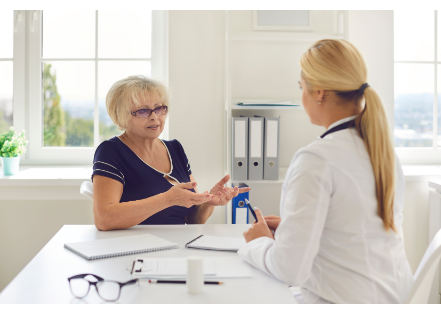
Hormones are the chemical messengers that travel through the highways and byways of our body (our bloodstream), and they control every important function of our body. Hormones are responsible for growth, development, metabolism, reproduction, and mood. And according to women’s health expert Marla Ahlgrimm, hormones play a major role in how women’s bodies are constantly changing throughout their lifetime.
Hormones And Adolescence
Marla Ahlgrimm says that girls experience a surge of hormones during adolescence. Estrogen and progesterone levels rise, and this injection of reproductive hormones triggers the development of breasts, hips, and pubic hair. Hormones are also responsible for the start of a woman’s menstrual cycle.
Hormones In Adulthood
Hormones remain important throughout women’s adult lives, says Marla Ahlgrimm. They continue to play a role in each system and each function. For example, Marla Ahlgrimm says that estrogen works to keep the bones strong and the heart healthy. Likewise, progesterone works to regulate the menstrual cycle. Other hormones, including testosterone, also play a role in women’s physical and emotional health.
Hormones And Menopause
During menopause, a woman’s ovaries stop producing eggs and her levels of estrogen and progesterone decline, says Marla Ahlgrimm. This can cause many dreaded changes throughout the body, including hot flashes, night sweats, vaginal dryness, and mood swings.
Hormones And Other Health Conditions
Many health conditions throughout the human body can be attributed to a hormonal imbalance. A few of the most common include polycystic ovary syndrome, endometriosis, and breast cancer.
How To Manage Hormonal Changes
There is no way to stop natural hormone changes, says Marla Ahlgrimm. However, she says that many women find that some lifestyle changes can help reduce the symptoms of hormone imbalance. Just a few of these include:
- Eating a healthy diet. According to Marla Ahlgrimm, when you eat a healthy diet, your body has the food and fuel it needs to produce the right hormones, in the right quantities, at the right time.
- Exercise. Exercise triggers the release of certain hormones throughout the brain. These “feel-good” hormones can interact with others, leaving you feeling happier and healthier.
-
Sleep. We all need sleep to function, says Marla Ahlgrimm. Although the science of the mechanics behind sleep are not yet fully clear, women are encouraged to get between seven and nine hours of sleep each night to allow their bodies to reset and regenerate.
.jpg)
- Medication. Medication, including HRT therapy, may help to relieve the symptoms of a hormone imbalance, especially for women undergoing menopause. Hormone-correcting medication and HRT should only be prescribed by physicians who understand the endocrine system and how hormones play a role in a woman’s health at every stage.